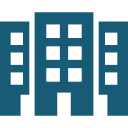Businesses and individuals can sometimes get into financial situations where there is no alternative but to file for bankruptcy.
In such a situation, the first step is to figure out what type of bankruptcy to file: Chapter 7, 11, or 13. As general rule, either businesses or individuals can file Chapter 7, which is commonly known as a “Liquidation” Bankruptcy. A Chapter 11, is commonly known as a Reorganization and is available to individuals, married couples, and businesses but it is mostly used by businesses. A Chapter 13 is typically only for individuals (not businesses with the exception of sole proprietorship businesses) and it is also called “Individual Debt Adjustment.”
For business bankruptcy, please see “Chapter 7 and Chapter 11 Bankruptcy in New Jersey” for a comparison of those two types of bankruptcy.
CHAPTER 7 BANKRUPTCY
In a Chapter 7 individual Bankruptcy, all of the filer’s debts (with a few exceptions) are discharged. In addition, all of your assets are listed on the petition. The filer’s assets may be liquidated and distributed to the creditors. However, this is not always the case as a majority of cases are considered “no asset” cases and the filer, by and through the utilization of his or her exemptions, retains and keep their assets and receives a discharge of all of his/her debts.
There are important differences between Chapter 7 for individuals versus Chapter 7 for businesses.
For individuals, Chapter 7 provides a way to start over with a “clean slate” or what is also called a “fresh start”. Almost all of a person’s debts will be discharged meaning the person is not obligated to repay the debts. Certain debts are not dischargeable in bankruptcy. For instance, alimony and child support obligations are not dischargeable. Additionally, student loans are not dischargeable except under rare circumstances. A creditor may file a complaint to object to the discharge of certain debts. By way of example, if money was loaned to you and you submitted a false financial statement or obtained money through fraud from a creditor then a creditor could file a complaint seeking to except that debt from a discharge. Consumer debts incurred aggregating more than $600.00 in value within 90 days before filing can be excepted from discharge by a creditor. These are just a few examples.
A Chapter 7 Trustee is appointed and if the Trustee determines your assets have value above and beyond your allowed exemptions, then the Trustee may liquidate those assets. For instance, if there is equity in your home above and beyond the homestead exemption, then your house may be sold by the Trustee for the benefit of creditors. There are different exemptions available under the Bankruptcy code. Please see our article “New Jersey Bankruptcy Law” for more information on exemptions. Our firm will evaluate your specific situation and discuss in detail the options and impact the bankruptcy will have on your particular situation.
Under the Bankruptcy Reform Act, an evaluation must be made to determine if you are even eligible to file for a Chapter 7 Bankruptcy. This is what is called the “means test.” If your income is below the means test income threshold, you can file a Chapter 7. If your income exceeds the median income threshold, as published, then as part of the bankruptcy petition, you must perform the “means test” to determine whether you must pay back a portion of your Debt through a Chapter 13. Our firm will analyze your situation to determine whether you are eligible for Chapter 7 or instead need to file a Chapter 13. New Jersey has one of the highest income thresholds due to the high cost of living in New Jersey.
A petition is prepared which lists all of your Assets and Liabilities through schedules. In addition, you provide details in these schedules concerning your income and expenses. Once you file a bankruptcy petition, there is an automatic stay which stops most creditor actions against you. After you file your petition, there is a 341(a) meeting of creditors. At this meeting, you are placed under oath and the Trustee and creditors are permitted the opportunity to ask you questions about your assets and creditors. A Chapter 7 for businesses is very different. There are no exemptions available. It’s basically a way to shut down a business when the business is no longer profitable and operations will cease upon the filing of a bankruptcy.
CHAPTER 11 AND 13 BANKRUPTCY
Chapters 11 and 13 are similar in that they allow a person (or a business in Chapter 11) to reorganize through a repayment plan. Any individual with unsecured debts less than $383,175 and secured debts less than $1,149,525 can file Chapter 13. Businesses are not eligible for Chapter 13 with the exception of sole proprietorship businesses.
One of the advantages of Chapter 13 over Chapter 7 is that through the repayment plan, you would be able to keep assets that otherwise may be sold in Chapter 7. Another benefit of a Chapter 13 over a Chapter 7, is that you can save your home from foreclosure in a Chapter 13 Plan or if you are behind in your mortgage payments, you can file a plan to catch up on those payments. In a Chapter 13 Bankruptcy, many (but not all) of your debts are usually forgiven. Just as in a Chapter 7, you file a petition in Chapter 13. In that petition, the proposed repayment plan usually spans over 3-5 years. The Chapter 13 Trustee reviews your petition and plan and can recommend approval or object to the plan. Likewise, creditors can object to the plan. The plan is normally funded by your future income but a plan also can include funding a plan by a sale of assets including your home. A plan needs to be approved by the court at a Confirmation Hearing. Payments are made to the Chapter 13 Trustee pursuant to the plan. The Chapter 13 Trustee makes the distribution to creditors who file proof of claims with the court.
Filing Bankruptcy Bankruptcy protection is afforded under Federal statutory law, and a bankruptcy petition is filed in the United States Bankruptcy Court, which is part of the United States District Court for New Jersey. The Bankruptcy Courts are located in Newark, Trenton, and Camden; where you file depends on where you live. The fees associated with filing bankruptcy, are as follows:
- Chapter 7: $335
- Chapter 11: $1,717
- Chapter 13: $310
This article is just a brief explanation of Chapter 7, 11 and 13. For a more detailed explanation of your options, contact our office for a consultation. Our firm will help you navigate the complex web of bankruptcy rules and advise you of all the options available to you; we will explore different alternatives under Chapters 7, 13 and 11 giving ample consideration to whether or not you need to file for bankruptcy in the first place.
An experienced bankruptcy attorney will guide you through this difficult situation. Here, at The Law Offices of Mitchell J. Malzberg, we have the expertise and experience to help and protect your interests every step of the way.



